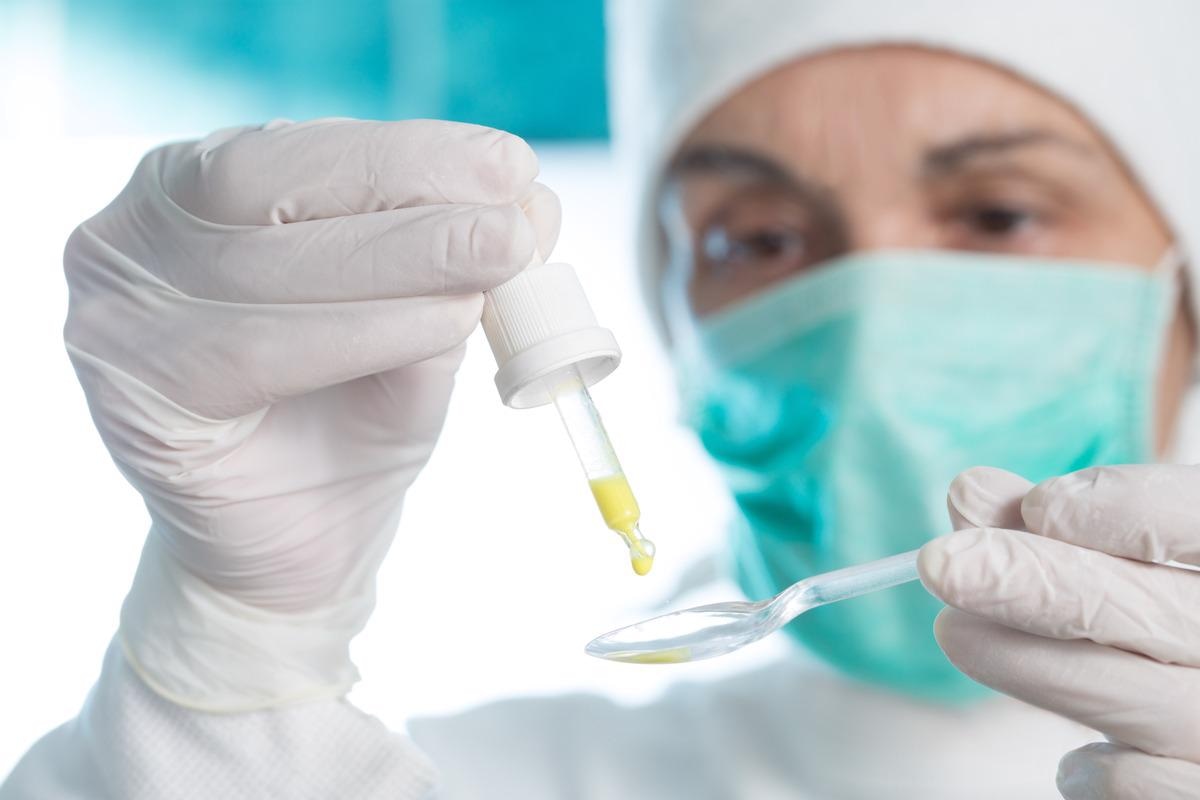Multiple vaccines against coronavirus disease 2019 (COVID-19) have been approved and many are being developed.
However, most varieties of these vaccines are injectables; only a few researchers have explored the potential of oral vaccines.
 Study: Plant-based expression of SARS-CoV-2 antigen for use in an oral vaccine. Image Credit: Geza Farkas/Shutterstock
Study: Plant-based expression of SARS-CoV-2 antigen for use in an oral vaccine. Image Credit: Geza Farkas/Shutterstock
The advantages of oral vaccines produced from plants include – lower research and production costs; ease of scalability; and minimal risk of contamination with human pathogens. These render better accessibility of plant-based oral vaccines to the global population.

 This news article was a review of a preliminary scientific report that had not undergone peer-review at the time of publication. Since its initial publication, the scientific report has now been peer reviewed and accepted for publication in a Scientific Journal. Links to the preliminary and peer-reviewed reports are available in the Sources section at the bottom of this article. View Sources
This news article was a review of a preliminary scientific report that had not undergone peer-review at the time of publication. Since its initial publication, the scientific report has now been peer reviewed and accepted for publication in a Scientific Journal. Links to the preliminary and peer-reviewed reports are available in the Sources section at the bottom of this article. View Sources
Background
Plant-based oral vaccines are generated through the expression of antigenic material within plants or green algae. These, upon ingestion, elicit an immune response that is protective against disease. Numerous plants have been explored for their potential to act as oral vaccines, for instance – potato, tomato, lettuce, maize and C. reinhardtii against Hepatitis B virus; tobacco, lettuce, carrot and C. reinhardtii against human immunodeficiency virus (HIV); and maize against rabies and influenza viruses.
Plant-based oral vaccines have also proven efficacy against bacterial and protozoal pathogens, for example – rice against Enterotoxigenic Escherichia coli and Vibrio cholerae; carrot against Mycobacterium tuberculosis; maize and potato against Vibrio cholerae; tobacco, lettuce, rapeseed and C. reinhardtii against Plasmodium; and tobacco against Toxoplasma gondii.
A recent finding depicted that oral ingestion of transgenic potato could confer the induction of severe acute respiratory syndrome coronavirus (SARS-CoV)-specific immunoglobulin (Ig)A, through a subunit of the Spike protein of SARS-CoV (S1).
Plant-based oral vaccines can induce cellular, as well as humoral immunity within the mucosal and systemic immune systems. Furthermore, the initial site of infestation of severe acute respiratory syndrome coronavirus 2 (SARS- CoV-2) is within the respiratory mucosa; hence, efforts to develop mucosal vaccines (oral or intra-nasal) could be an effective complement to conventional vaccines.
The purpose of a recent study published in bioRxiv* preprint server was to optimize methods for the in-planta expression of the recombinant protein corresponding to the Receptor Binding Domain (RBD) subunit of the surface-exposed Spike glycoprotein of SARS-CoV-2.
The study
In this study, the suitability of nine edible plant species was evaluated for expression of the viral antigen following transient transformation mediated by Agrobacterium tumefaciens.
This study was partly funded by the University of Ottawa Faculty of Science. Here, the researchers established parameters for optimal RBD expression in the most promising host plant.
The experiments entailed testing of recombinant proteins in lettuce (Lactuca sativa), spinach (Spinacia oleracea), collard greens (Brassica oleracea), cucumber (Cucumis sativus), tomato (Solanum lycopersicum), radish (Raphanus sativus), arugula (Eruca vesicaria), peppers (Capsicum annuum) and Choho Hybrid greens (Brassica rapa).
Findings
The highest and most consistent expression of RBD-CTxB was found in lettuce. Meanwhile, mild or inconsistent recombinant viral protein expression was observed in arugula, Choho Hybrid greens, pepper, spinach and tomato. Tomato and pepper leaves developed both chlorosis and necrosis after infiltration. Collard greens or radish did not elicit viral protein expression while their leaves did not exhibit visible damage from agroinfiltration.
On assessing optimal parameters to maximize protein expression in this host, comparable expression of RBD-CTxB between leaves infiltrated with an Agrobacterium suspension was noted, with minimal-to-no visible signs of chlorosis or necrosis. However, a little yellowing was observed in tissue infiltrated.
Monitoring of accumulation of RBD-CTxB at 2-10 days post-infiltration (dpi) showed that RBD-CTxB expression appears to increase with time to achieve the highest levels at 6 dpi. It subsequently declines from 8 dpi to 10 dpi. The results indicated that lettuce plants should be harvested six days post infiltration.
The present study renders one of the first protocols to express SARS-CoV-2 viral antigen in an edible plant species. These results may serve as an essential step in developing a plant-based oral vaccine that is protective against COVID-19. Such vaccines have the potential of enhancing equity in vaccine development and distribution in low-income developing countries.

 This news article was a review of a preliminary scientific report that had not undergone peer-review at the time of publication. Since its initial publication, the scientific report has now been peer reviewed and accepted for publication in a Scientific Journal. Links to the preliminary and peer-reviewed reports are available in the Sources section at the bottom of this article. View Sources
This news article was a review of a preliminary scientific report that had not undergone peer-review at the time of publication. Since its initial publication, the scientific report has now been peer reviewed and accepted for publication in a Scientific Journal. Links to the preliminary and peer-reviewed reports are available in the Sources section at the bottom of this article. View Sources
Journal references:
- Preliminary scientific report.
Power, M., Azad, T., Bell, J., et al. (2021).Plant-based expression of SARS-CoV-2 antigen for use in an oral vaccine. bioRxiv. doi: https://doi.org/10.1101/2021.12.07.471131 https://www.biorxiv.org/content/10.1101/2021.12.07.471131v1
- Peer reviewed and published scientific report.
Power, Monique, Taha Azad, John C. Bell, and and Allyson M. MacLean. 2022. “Plant-Based Expression of SARS-CoV-2 Antigens for Use in an Oral Vaccine.” Journal of Food Science and Nutrition Research 5 (3): 591–93. https://www.fortunejournals.com/articles/plantbased-expression-of-sarscov2-antigens-for-use-in-an-oral-vaccine.html.